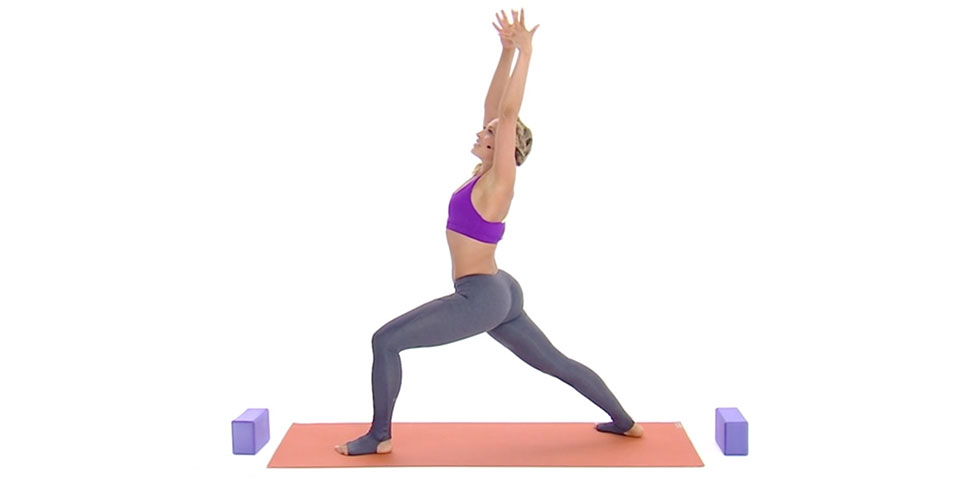
These are some tips to help you prepare for your first yoga class. The first tip is about what to wear to class. Talk to your instructor if you have any questions. You should not use the second variation if you are nervous or have any physical limitations. Next, listen to your instincts and take breaks when necessary. Don't let the yoga teacher discourage you - it's perfectly natural to want to push yourself and try the next level.
The next tip relates to preparing for yoga class. Beginners should arrive 15 minutes before class starts to allow enough time to locate a seat and use the bathroom. It will also give you enough time to adjust to the space before classes begin. You may feel nervous about going to class, and this can translate into jitters on the mat. Many new students report feeling anxious before their first class of yoga. This stress is only increased by being late.
Next, we will talk about clothing. Even though most people will be wearing yoga pants and tops during the practice, they should still be comfortable. It should allow you to move freely and absorb sweat. If you're new to yoga, be sure to drink lots of water before class. Water will help you flush out toxins. Also, avoid eating heavy meals before your class. This will make your practice as safe as possible.

Enjoy your classes. This can lead to negative feelings if you are comparing yourself with others. Your yoga class should not be about comparing yourself to others. You shouldn't compare yourself to other people or fret about how others do it. Be kind to yourself and be respectful of others. If you are a beginner, you can start with yoga by trying different postures until you find one you like.
Another tip is to be punctual. No matter where you're studying, being on time for yoga classes is an important trait. You'll often feel rushed and annoyed when the class is crowded. You can still practice your yoga as often as possible, even if it's not possible to make it in time. Make sure you have the proper equipment and clothing when you prepare for your class.
Don't rush into yoga classes. You'll want to take your time and relax after you're finished. This is the most important part any yoga class. The first class can be a milestone. But, you want to keep practicing until you are comfortable. This is because the effects of yoga are cumulative. So the more you practice, the more you'll feel the benefits of it.
The first few months of yoga can be difficult for beginners. Practicing yoga is not a quick fix. Your body and mind need to be respected. Do not try to push yourself too much. It will take a while for your body to adapt to your practice, so you should be patient. You need to be able to move freely in your clothes. You'll find that you can do all the poses you like after a few weeks.

Respect the teacher is important. The purpose of the class is to be disconnected from your everyday life. You should keep your phone off the table. It's tempting to put your phone in the car or lock it in a locked locker when you are in class. But, don't interrupt the teacher. You will only endanger yourself and others. You can still enjoy your practice if you are just starting out.
It is best to do yoga in the early morning. The sun is shining and you're fresh. If you're not accustomed to practicing yoga, start with the simplest poses first. This will help build your confidence and get you used to the movement. You can warm up with a simple nursery rhyme, if yoga is something you have never done before. Then, you'll be more comfortable and your yoga practice will last longer. This will give a headstart.
FAQ
What's the Best Way to Lose Weight?
Losing weight is easier said than done. Many people give up because they don’t know what else to do.
But there are steps you can follow to shed extra pounds.
First, you must ensure you eat fewer calories than you burn. You can gain weight by eating more calories than your body burns.
You should also exercise regularly in order to lose all those calories. You have many options, including walking, biking, dancing and jogging.
Third, stop smoking cigarettes or drinking alcohol. These habits make it more likely that you will consume more calories than you would normally.
Fourth, cut down on junk food and fatty foods. You can replace them with healthier options such as fruits, vegetables, lean meats, whole grains, nuts, seeds, beans, etc.
Fifth, you should change your lifestyle to adopt new habits. Perhaps you need to get up in the morning to exercise before heading to work.
Sixth, discipline and following a diet plan are essential.
You can also burn excess calories by joining a gym, or taking an aerobics course.
These simple tips will help you quickly see results.
How many calories per day should I consume?
This will vary from person-to-person. On average, between 2000 and 2500 calories a day. You need to determine how many calories you need based on age, gender, height, weight, activity level, and lifestyle.
Why Metabolic Well-being is the Key to Aging Well
People are living longer today than ever. But as they do, they're also getting sicker. While medical science has made incredible advances, it's becoming increasingly obvious that the current approach is not working.
We must change the way that we look at health and aging. We have to start looking at metabolic health - not just weight loss but overall wellness - as the key to healthy aging.
If you want to live a healthy, active lifestyle for the rest of your life, it is important to maintain a strong metabolism throughout your entire life.
There are many options to improve your metabolic health. One way to improve your metabolic health is to incorporate these seven foods into your daily diet.
-
Resveratrol has been found to be a key ingredient in blueberries, and it has been shown that it can help increase cell longevity. They are also rich in vitamins C & E and antioxidants.
-
Pinto beans and lentils are great sources of fiber and plant-based proteins. These nutrients are important for maintaining blood sugar levels that don't spike, crash or change.
-
Broccoli is rich in sulforaphane. Studies have shown that it protects cells from DNA damage. It might even slow down the progression of cancer.
-
Chia Seeds have high levels of omega-3 fatty oils and fiber. They are high in protein and antioxidants. These nutrients promote gut health, brain function and heart health.
-
Green Tea contains polyphenols called catechins. Green tea catechins have been shown to reduce bone fractures, heart disease, cognitive decline, diabetes risk, and other health issues.
-
Salmonis high in protein and rich in vitamin D is one of the most popular sources of lean proteins.
-
Walnuts have omega-3s and antioxidants such as alphalipoic acid (ALA). ALA aids in energy production and protection against inflammation.
Statistics
- The PRS enabled risk stratification for overall prostate cancer and lethal disease with a four-fold difference between men in the highest and lowest quartiles (HR, 4.32; 95% confidence interval [CI], 3.16-5.89). (pubmed.ncbi.nlm.nih.gov)
- An estimated calorie range for moderately active adult males falls between 2,200 to 2,800 calories per day, depending on age. (eatright.org)
- Get free shipping and 25% off today. (healthline.com)
- By John Thompson Take a whopping 38% off a set of PowerBlock Pros. (menshealth.com)
- According to the American Academy of Dermatology (AAD), men over 50 are at a heightened risk of developing it. (healthline.com)
External Links
How To
What nutrients is a man supposed to consume daily?
For healthy growth and development, men need to eat a balanced diet. The body requires vitamins and minerals, protein, carbohydrates, fats (fats), water, fiber, as well other essential elements.
You also need specific nutrients for different times in the day. To give you an example, the body uses energy it receives from food to make hormones and antibodies. When you get up, protein is used to repair and build muscle.
Your body stores extra energy as glycogen and breaks down fat at night. During this time, your body needs fewer calories but still needs sufficient nutrients. If you feel hungry, you can have a snack in the evening.
For your body to function properly, it needs adequate amounts of protein and carbs. If you exercise hard, you might feel muscle soreness.
You must ingest carbs and protein within two hours of training to prevent this. Your body will breakdown stored glycogen and provide you with glucose for energy.
In addition, you must consume protein immediately after completing your workouts. This prevents the breakdown of muscle tissue that occurs while you sleep.
Your body produces lactic acid during high levels of physical activity. Lactic acid builds up in the bloodstream and causes fatigue. This can be avoided by eating foods high in carbohydrates like fruits and vegetables.
Carbohydrates give your body the energy it needs to recover from strenuous exercise.
A healthy diet should include lean meats such as fish, eggs and milk, cheese, yogurts, beans, seeds, nuts, and beans.
All of these foods contain high quality protein. Protein helps to repair and grow muscles. Protein is also necessary for the production of sex hormones such as testosterone.
Good skin, hair, and joint health requires adequate dietary fats. Healthy men should consume between 20% to 35% of their daily caloric intake from fat.
Fat is good for your heart and helps you fight cancer. It is essential for proper brain function.
You can get the majority of the fats that you need from vegetable oils such as soybean oil.
These oils are high-in monounsaturated, unsaturated fatty acid (MUFAs). MUFAs can lower cholesterol levels and reduce inflammation. They protect cells against damage from free radicals.
Saturated oils (SFAs), found primarily in animal products such meats, dairy products and butter, are known to raise LDL ("bad") cholesterol. SFAs can raise LDL ("bad") cholesterol levels and increase triglycerides. They promote weight gain as well as belly fat.
Polyunsaturated fats (PUFAs) are found in plant-based sources like vegetable oils, nuts, seeds, and grains. PUFAs reduce inflammation and improve cardiovascular function. They can also control blood sugar levels and cholesterol.
Men with low HDL ("good") cholesterol often suffer from erectile dysfunction. The consumption of saturated fats raises bad cholesterol which in turn lowers good cholesterol.
Men who eat large quantities of red meats or pork may develop prostate problems. If cooked at high temperatures, the nitrates become nitrosamines. These compounds can cause cancer.
Most processed meats have nitrites and harmful chemicals. They should be avoided.
The American Heart Association recommends that you limit your intake of red meat to 2 per week. Instead, choose poultry and fish, legumes, tofu or whole grain bread as your main source of protein.